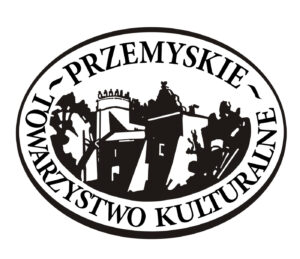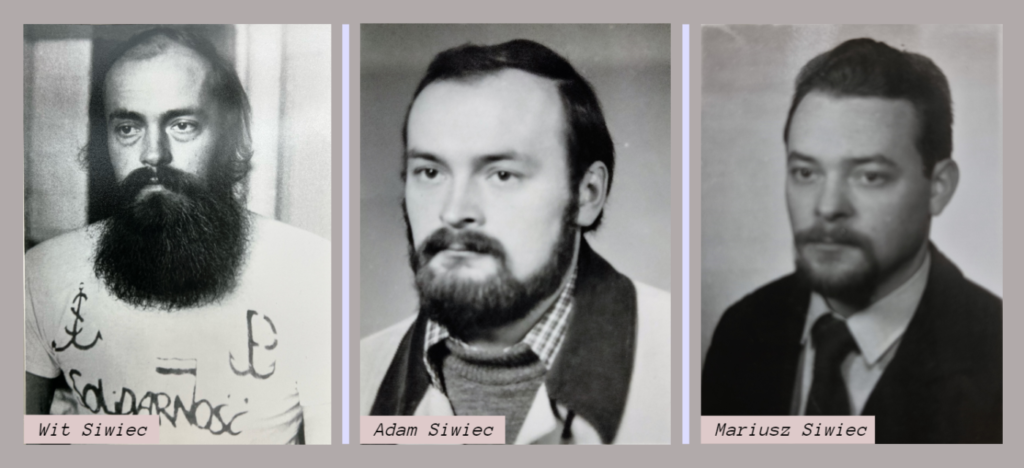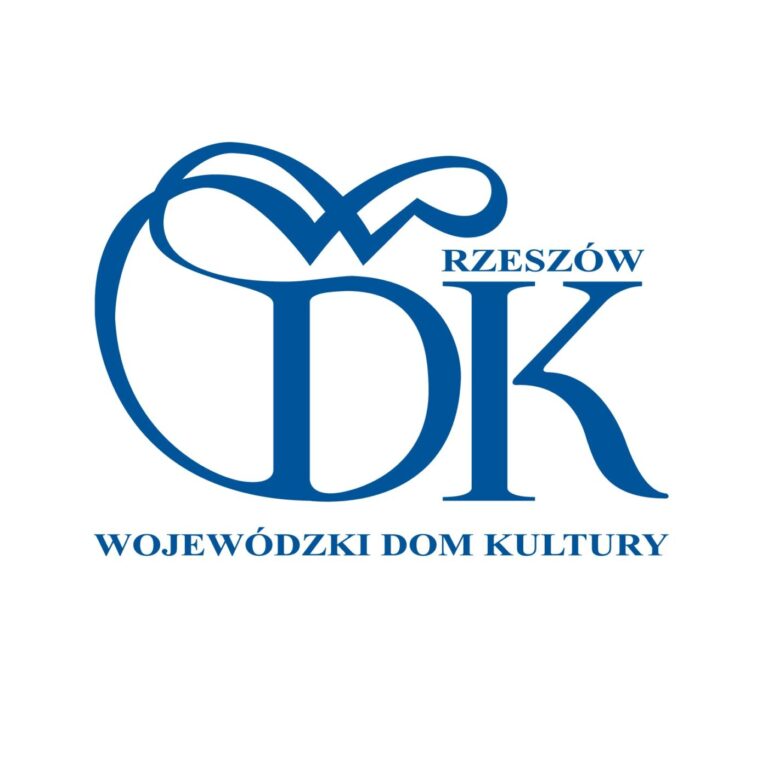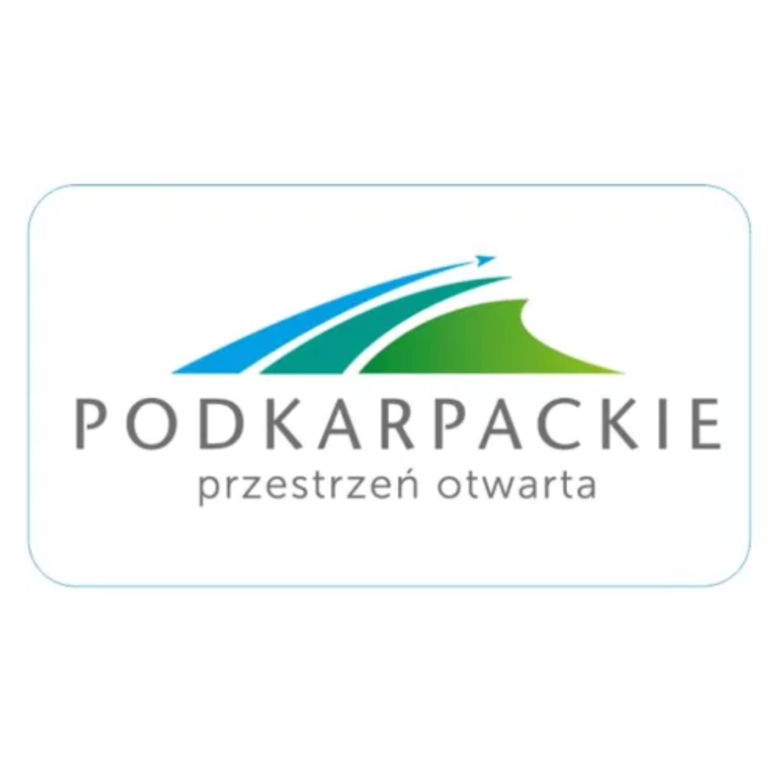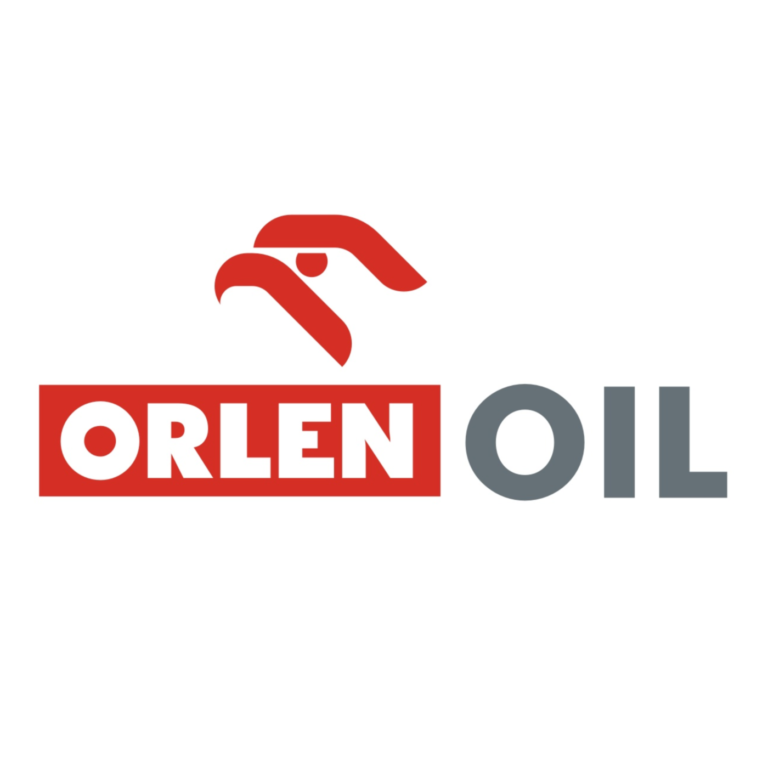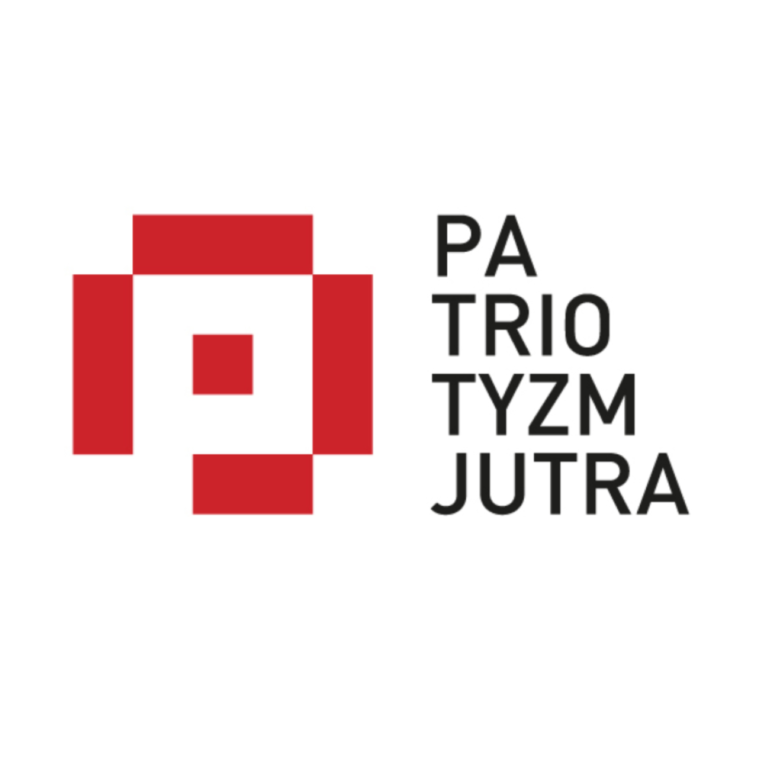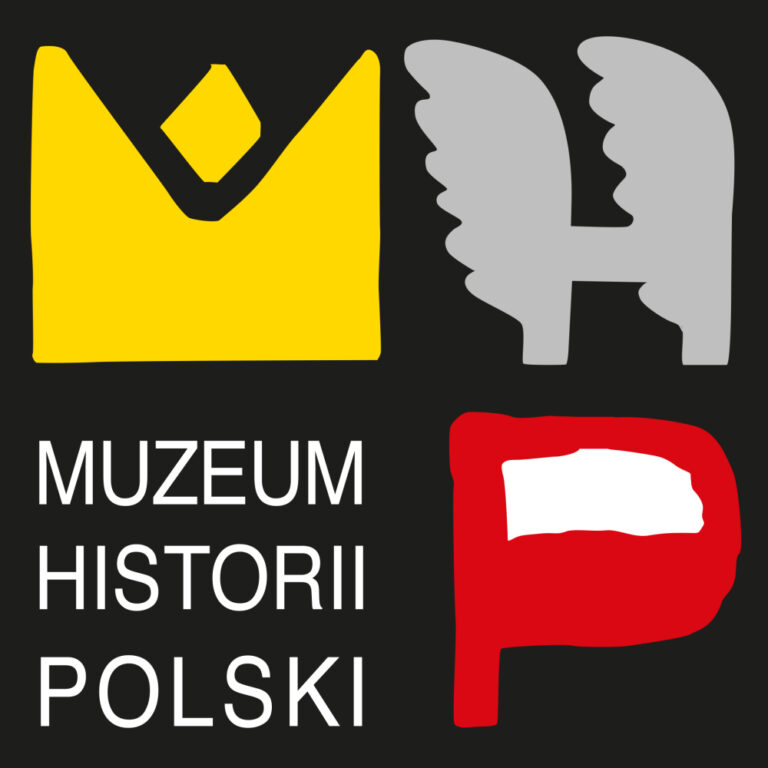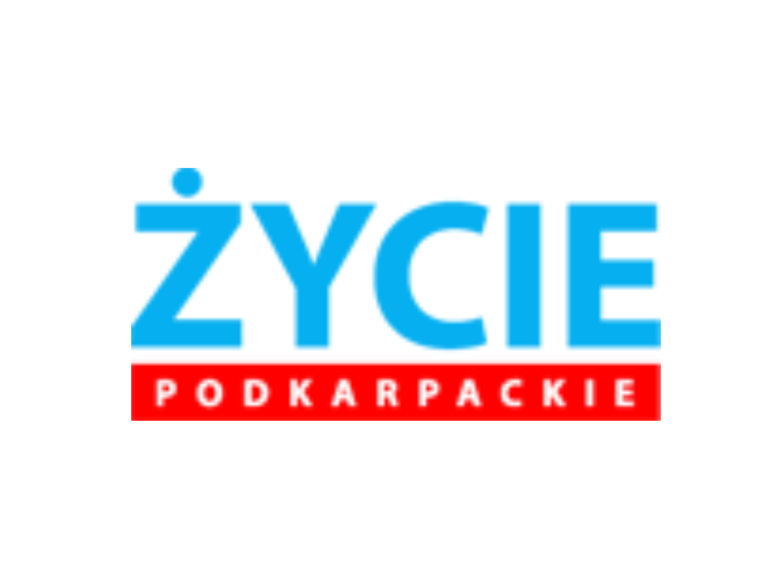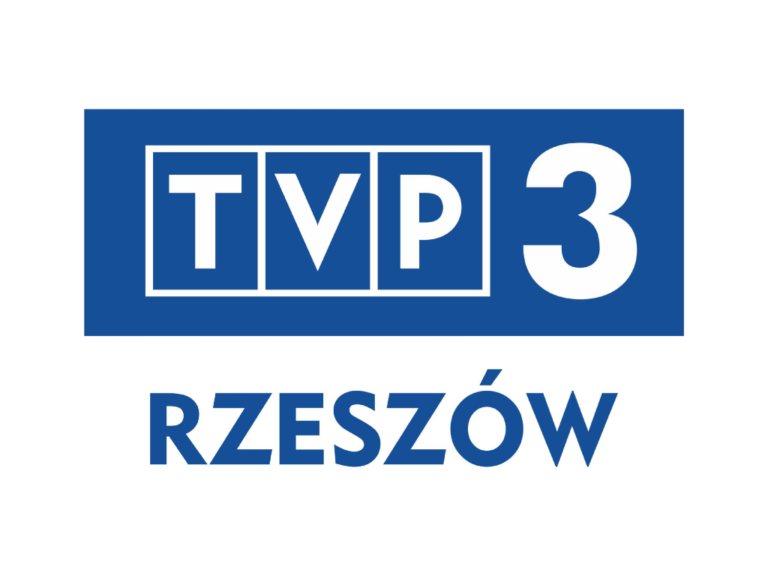The emergence of "Solidarity" in Przemyśl - on the example of the activities of the Siwiec brothers: Wit, Mariusz and Adam
1) The beginnings of Wit Siwiec's opposition activities
.
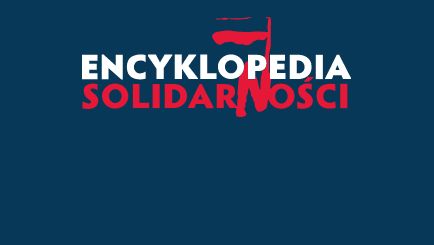
FROM THE ENCYCLOPEDIA OF SOLIDARITY IPN
Wit Eugeniusz Siwiec, b. Born July 13, 1952 in Przemyśl. A graduate of the Technical School of Agriculture and Meadows in Przemyśl (1972). 1974–1975 teacher at Primary School in Sielnica, 1976–1977
https://encysol.pl/es/encyklopedia/biogramy/18628,Siwiec-Wit-Eugeniusz.html?search=792082169
.
From the author:
As we know, as a result of mass workers' strikes in June 1976, caused by a drastic increase in food prices, the communist security apparatus arrested and imprisoned thousands of workers who had previously been beaten by rows of militiamen in the so-called paths of health. The impact of the communist authorities on the working class naturally created fertile ground for the activities of opposition groups, which in secretly printed and distributed magazines informed about repression, defended workers and condemned the communist regime, demanding freedom and democracy for Poland.
In these circumstances, the then 24-year-old Wit Siwiec did not remain passive. After all, he remembered the heroism of his father Ryszard, who 8 years earlier had set himself on fire in an act of condemnation of the communist dictatorship that was enslaving Poland.
Vit:
I took up opposition activities shortly after the establishment of the Workers' Defense Committee, sometime in the autumn of 1976. There was a group of us in Przemyśl. There was Jasiu Ekiert and Stasiu Sudoł, and Stasiu Kusiński, who worked in Warsaw and lived in Przemyśl, commuted to us. I joined them. Our main goal was to distribute the illegal press, because we felt the need to inform at least part of the inhabitants of Przemyśl about what was happening in the country.
At that time, KOR published its bulletin in the form of a monthly. Later, other independent opposition groups began to emerge, including ROPCIO, or the Movement for the Defense of Human and Civil Rights. It was there that Jasiu Ekiert became very involved. Regardless of this, a peasant movement began to sprout slowly, publishing the magazine "Placówka" and focused mainly around Zbrosza Duka in Mazovia. Wiesio Kęcik was very involved in this field. At that time, Mirek Chojecki founded and printed his independent magazine "Nowa". And later, Heniek Wujec organized an opposition workers' movement and started publishing an illegal newspaper "Robotnik".
We collected these letters from whomever we could and brought them to Przemyśl. We gave them to people we trusted. We wanted this underground press to fall into good hands and to be passed on, so that all this would circulate among people. I knew a lot of inhabitants of Przemyśl, because I worked in Przemyśl Housing Cooperative.
In 1978, I organized the Self-Defence Committee of Believers at the parish in Kmiecie. At that time, the church was under construction, and the parish priest was Fr. Adam Michalski. He was incredibly harassed and repressed by the authorities. Well, we established this Committee to defend it, and at the same time to ensure that the true information reaches the inhabitants of Przemyśl. Our Committee published printed "Communications". It's awkward for me to talk about it, but I was the author of all of them, which the security service found out only after the third edition.
In the first issue of this magazine, all members of this Committee were mentioned by name. People who only supported us in various ways were not disclosed there. Their help, however, was communicated to the Bishop's Curia. And in total, we published about seven of those "Communications", if I remember correctly. The first issue was filled with information related to the parish, the illegal - according to the authorities - construction of the church, but also important national and world information.
It was so with this church that there was a barn on this property first. Inside the barn, the parish priest secretly arranged to build a chapel. And on Saturday evening the roof and walls of the barn were dismantled, and on Sunday a holy mass was celebrated in the chapel. That's how it all began, and then the construction of the church began, also without permission. The parish priest had previously asked the authorities for permission to build a church for the Kmiecie estate, but of course all the answers were "no". Well, the church was built without permission.
The authorities did not dare to stop the formally illegal construction of the church, and directed their frustration and anger at the members of the Believers' Self-Defence Committee. All those who belonged to this committee were detained from time to time for various periods. The minimum penalty was closure for 48 hours. But sometimes it happened that they released a man, for example, at three in the afternoon, and when he returned home, they detained him again for another 48 hours.
2) Breakthrough summer - 1980
Vit:
At that time, when Solidarity was being established on the wave of nationwide strikes in July and August 1980, I no longer worked in the Housing Cooperative and I was not an employee of any workplace. And one day, Stasiu Sudoł came to me and said that PAX was organizing free trade unions in Przemyśl. I suspected that something was wrong here, so that same day in the evening I went to Warsaw, to Staszek Kusiński in the Solidarity Mazowsze Region. There my doubts were confirmed. I was told that PAX is not supposed to organize trade unions, but the employees themselves are to organize themselves in their workplaces and create founding committees of NSZZ "Solidarity".
Returning to Przemyśl, I was afraid that PAX or old WRZZ activists would be the first to establish supposedly free trade unions that would not be bottom-up, authentic, but somehow controlled by the authorities. As soon as I got home, I turned to my two brothers and sister to help me organize Solidarity. I asked them to disseminate information about the Independent Self-Governing Trade Union "Solidarity" being established throughout the country in their workplaces. I urged them to organize Founding Committees together with their trusted collaborators. And the siblings helped. It was August 1980. The first one was Mariusz, who worked in "Fanina", followed by Adam, an employee of POM in Przemyśl. Our sister, unfortunately deceased Elżbieta, was also active in the Hotel Solidarity.
3) Establishment of NSZZ "S" in Przemyśl "Fanina"
Mariusz:
At that time, I was an employee of "Fanina", where 550 people were employed. I worked in the mechanical quality control department, so I was able to walk around the plant and knew many of the employees. During meal breaks, I would go out onto a platform and pass on information obtained from my brother Witek about the situation in the country and about the emerging Trade Union "Solidarity". I argued that we should also organize ourselves here as a union independent of any institutions and authorities. I did it fully convinced that Solidarity would succeed.
But soon trouble began. The management of the plant started to disgust me. I was forbidden to leave the mechanical department and walk around the production halls. So I had to gain a brave and important ally. I knew that Krzysztof Prokop, a very decent man, worked in the Design Office of the plant. A professional with long work experience valued by the management, and at the same time highly respected by the crew. So I went to him and said: Mr. Krzysiek, help save the situation, because they are getting into our skin. And he agreed that we should organize the Founding Committee of "Solidarity" in the plant. There was a third person with us, but I don't remember the name.
I remember the three of us going to the plant's general manager and saying, “We are asking for your signature approving the publication of our Announcement on the company's radio station regarding the organization of the Founding Committee of NSZZ "Solidarność" in "Fanin". The director replied that he could not sign such an agreement. Krzysztof Prokop calmly asked, emphasizing each word: "Then do you want us to do in 'Fanin' what the workers did in Ursus"? He thought for a moment, but finally signed his consent under our message.
So we could legally act and issue organizational messages. It is true that I did not distribute political opposition leaflets at the plant. I didn't want to risk it because it was my workplace. However, we managed to establish the Solidarity trade union in Fanin, which most of the staff signed up for, some 450 people out of 550 employees. If it wasn't for my marriage in Lesko and living there, I would probably be a significant solidarity activist in Przemyśl. And I would certainly be interned afterwards, along with my brothers.
4) Establishment of NSZZ "S" in POM in Przemyśl
Adam:
I worked at the State Machinery Center in Przemyśl as a deputy workshop manager. Our Founding Committee of NSZZ "Solidarność" was established at the turn of August and September 1980. At that time, the statute of Solidarity probably already existed. The fact of not holding a managerial position was beneficial for me and for the cause, because - according to the statute of Solidarity - persons holding managerial positions could not aspire to the function of the chairman of the Union in the workplace. And I was just a deputy, so I took matters into my own hands.
I started organizing the Union in POM in August. Only 150 people worked at the plant, so we communicated with employees personally. There were no leaflets, only word of mouth. Using the information brought from the Union's headquarters by Brother Witek, I reached personally from person to person, from department to department. And in POM we organized the Founding Committee of NSZZ "Solidarność", of which I became the chairman. And I must admit that there were no restrictions on the part of the director. I had no great difficulty in doing this.
Of course, at the beginning people were still a little afraid, so not everyone wanted to join Solidarity. However, after further conversations and information about what was happening all over Poland, people gained courage and did not refuse us anymore. They just knew it wasn't going to happen
only in Przemyśl, Mielec or Rzeszów, but that this wave of Solidarity is spreading all over the country and is getting bigger and bigger. It was something new and people were curious how this Solidarity would start operating alongside the existing trade unions, but as a trade union independent of the authorities and self-governing. The growing successes of Solidarity throughout Poland gave people the certainty that it must succeed. As a consequence, almost all employees of POM in Przemyśl, including the general director of the plant, signed up for Solidarity. Only three people refused: the technical director, the head of the military unit (that is, in fact, a secret agent providing the Security Service with information about the situation in the workplace) and the HR lady.
Vit:
It is also necessary to say a few words about our sister, late. Elizabeth, after the husband of Shabag. Elżbieta also agreed to help us and organized the Founding Committee of "Solidarity" in the Hotel Dworcowy where she worked.
5) Organizing broader structures of Solidarity in Przemyśl
Vit:
Having three Solidarity Works Committees at home, I contacted my old friends in the Przemyśl Housing Cooperative. There, the "S" Works Committee was organized by Zygmunt Majgier. So I invited Zygmunt to a meeting in our apartment at ul. Okrzei 2, of course, I also invited the Plant Committees established by the brothers in "Fanin" and POM, as well as Andrzej Kucharski, who founded Solidarity in the "Polna" plant. And we had the first meeting of representatives of the future Solidarity Trade Unions from several workplaces in Przemyśl. And the place of the meeting was quite symbolic, because it was the same room where, years ago, our father, Ryszard Siwiec, made notes in preparation for sacrificing his life in his famous protest against the communist dictatorship.
It can be said that it was the first founding meeting of the all-Polish Solidarity structure, although without a formal protocol yet. Several of these meetings were held in our apartment. During these meetings, I called Solidarity structures in Gdańsk and Warsaw. In this way, I wanted to prove to them that I am not in the least inventing the organization of broader Solidarity structures in Przemyśl, but that it is really happening here.
At the next and at the same time the last such meeting in our apartment, apart from my brothers, several other chairmen of the Founding Committees from Przemyśl workplaces were present. Władysław Mazur from Płyt Płyśniowe also appeared. All in all, it was quite a representative group of Solidarity activists from Przemyśl. It was me who led the meeting, sharing my knowledge about the Solidarity Trade Union, as well as the latest information brought from Warsaw. I reported, among others an appeal by the headquarters to create broader union structures in individual cities and regions of the country. And at that moment, Władysław Mazur turned to me with the following words: “Mr. Witek, now would you be kind enough to leave this room, because we will elect a Provisional Administration of the Przemyśl Region here. Well, you don't represent any company." I left feeling sad, but what could I do.
Adam:
We then elected the first chairman of Przemyśl Solidarity, who was Władysław Mazur. There were probably seven of us there, if I remember correctly, i.e. representatives of seven Przemyśl workplaces. I represented "POM-Przemyśl", brother Mariusz and Krzysztof Prokop - "Fanina", Andrzej Kucharski - "Polna", Gienek Opacki - "Klejowe Zakłady Remontowe", Czesław Kijanka - "POM-Bircza", and Władysław Mazur - "Zaklady Remontowe" Fibreboards”. I was assigned the role of treasurer. And so, in the third decade of September 1980, the first Inter-Enterprise Founding Committee of NSZZ "Solidarity" in Przemyśl was established. The problem is that after the meeting, nervous Witek told us: "Well, who did you choose. Because I have reasonable suspicions that he is rather a supporter of "Free Trade Unions". Later, it actually turned out that Władysław Mazur represented the profile of trade unions that was competitive with Solidarity. But choosing him, we did not have that certainty at the time, and we knew him as a friend of our late. father.
Vit:
After this unfortunate meeting, when almost everyone had dispersed, I stopped Czesiek Kijanka and Gienek Opacki, telling them: "Gentlemen, something needs to be done about this, because it can't stay like this." We knew that Mazur was going to the Headquarters in Gdańsk to report the creation of Solidarity in Przemyśl. So I proposed an idea to hold a meeting in a wider group, with representatives of more workplaces from Przemyśl and the surrounding area, and to repeat the elections. Since there are additional workplaces, this is a new situation, and they also have the right to participate in the election of the chairman of the Solidarity movement in Przemyśl.
6) Organizing the regional structure
Vit:
Another idea occurred to me. Well, Przemyśl has long been in a quarrel with Jarosław. I thought, at least in relationship matters, that shouldn't be the case. So I told my trade union friends, Kijanka and Opacki:
“Gentlemen, the Inter-Enterprise Founding Committee of 'Solidarity' has already been established in Jarosław. So let's go there and invite them to create a joint voivodeship structure of NSZZ "Solidarność", and maybe even a supra-voivodeship structure.
Since then, the idea of creating the South-East Region has been in my head. I had very good contacts with activists of the peasant movement from the Krosno Voivodship, who felt a bit lost. So I thought we should open our arms wide and welcome everyone into a common structure. And since we are south-eastern Poland, why not call such a supra-voivodeship union structure the South-Eastern Region?
It was already the first decade of October 1980, when Mr. Zając from the Works Committee of the Disabled Cooperative "Praca" in Przemyśl drove us in his car to Jarosław for a meeting with the local head of the Inter-Enterprise Founding Committee of "Solidarity", Kazimierz Ziobro. With his approval, we soon organized joint elections in Przemyśl, in the common room of the Association of the Deaf, attended by delegates from Jarosław.
I opened the meeting, introducing myself as an activist associated with NSZZ "Solidarność" Mazowsze, and immediately added that since I do not represent any workplace from the Przemyśl voivodship, I propose that this meeting be chaired by Czesław Kijanka, chairman of the Plant Committee from POM Bircza. To be honest, I assumed in advance that the person leading the meeting aimed at electing the regional authorities would most likely be elected chairman of this structure. And so it happened, because at that time people were still a little afraid and there were not many people willing to lead the structures of the Union.
However, before the participants agreed on Czesław Kijanka as the chairman of the meeting, Władysław Mazur stood up and spoke more or less like this: “Ladies and gentlemen, this meeting should not take place, because there are as many as three Siwiec brothers here. It can't be like this!” The chairman of Kijanka immediately extinguished Mazur, stating that it did not matter. His appeal to continue the meeting met with the full acceptance of the participants.
Adam:
The election meeting in the day room for the deaf was attended not only by representatives of the Founding Committees of "Solidarity", but also by the old trade unions. And, for example, in the POM in Przemyśl, the chairman of these "state" trade unions still functioned. And he also participated in this election meeting together with me, as the chairman of the Founding Committee of "Solidarity" from the same workplace. In total, representatives of 35 workplaces from Przemyśl and Jarosław participated in the meeting. The room was full.
Theoretically, the chairmen of the old trade unions could also run for the chair of the Region, but as a rule they did not use it. For example, the chairman of the old trade unions from POM Przemyśl immediately announced that he was withdrawing and handed over to me to represent this workplace.
It's as if the confusion of the leaders of the old unions ended somewhere after 3 months, when the uncertainty about the situation of the Solidarity movement has passed. At that time, as the manager of the Intervention Office at the Regional Board, I organized meetings in virtually all Przemyśl workplaces that did not join NSZZ "Solidarity" in the first phase, i.e. in the elections in the day room at the deaf-mute. And there were probably 150 of these plants. Well, the employees of these subsequent workplaces decided in a vote: either to remain in the old unions or to join Solidarity. And everyone chose Solidarity, including the presidents of the old trade unions, plant directors and presidents of cooperatives. It was January-February 1981, when our Association began to fully function and from month to month it was gathering masses of members, like the proverbial snowball.
Vit:
Together with Czesiek Kijanka, as the chairman of the Inter-Enterprise Founding Committee of NSZZ "Solidarity" in Przemyśl, three vice-chairmen were elected: Kazimierz Ziobro from Jarosław and Gienek Opacki and Andrzej Kucharski from Przemyśl. The presidium of the MKZ was also elected, which held its deliberations immediately after the meeting. I approached this group with the following proposal: "Ladies and gentlemen, it would be very nice of you if you would adopt a resolution that I will have the right to participate in the meetings of the Presidium with the right to express my opinion on a given matter, but of course without the right to vote, as I do not represent the workplace." And the Presidium passed such a resolution. From that moment on, I was able to formally represent the MKZ, although without a seat, without technical equipment and without payment. The most important thing was that I could legally start operating within the Presidium.
First of all, we made efforts to obtain premises for Solidarity, the governor of Przemyśl, Andrzej Wojciechowski. Such a place was given to us in the building on the Stone Bridge, albeit at a slightly later time. We were even given a car.
7) Information activities
Vit:
At one of the subsequent meetings, I drew the attention of the Bureau to the fact that "so far, our Achilles heel is information activities." So I proposed creating our trade union magazine. Vice-President Gienio Opacki strongly supported me on this matter. The press spokesman was Wojciech Łukaszek, so he also applauded this idea. And a four-person editorial office was created. At the beginning, I prepared a vignette, which the team approved. When we jointly assembled and prepared the content of the issue for printing, a problem arose: who will sign the first issue with their first and last name? Since there were no volunteers, I proposed that we name the Editorial Board as the author, on whose behalf I will sign. And so we did in the first issue, which, after being printed, was sent according to the distribution list to each Plant Committee and to the state Archive.
The next day, Czesiu Kijanka came to me with a grudge: "Witek, you can't sign for the editorial office, because the trade unionists will scratch my eyes out." So the next issues had the caption: "Editorial Team" with the names of all members of the editorial office. And so it was until the moment when Adam Szostkiewicz from the teachers' section of the Association was elected as the press spokesman and joined the editorial office of the magazine. From then on, he signed the journal's numbers himself.
8) Intervention Bureau
Adam:
When I was a member of the South East Regional Board, I was entrusted with the management of the Intervention Office located at the Regional Board. My company sent me two days a week to work there. We started our activity right after the Region, if I remember correctly, in late December 1980 or early January 1981, received premises in the building at Kamienne Most. I remember that the beginnings were difficult also because we had big problems with heating on the fourth floor of this building. However, we started working quite intensively from the very beginning. Several lawyers helped us selflessly (including Ryszard Góral, Stefan Czejkowski and Zygmunt Kościuk), and we accepted the parties. The cases that came to us and in which we intervened were of various types.
Of course, the main purpose of the Bureau's activities were interventions concerning the members of the Union. In most cases, therefore, these were trade union matters, as well as employee matters in workplaces, e.g. regarding the allocation of flats. Matters outside the union were supposedly secondary, but also important and often very difficult. Many people from outside the Union who felt wronged by the communist system for many years came to us. They knew that Solidarity was the only opposite of the state authorities, so they sought help from us. How could we refuse her? They brought to our office relevant documentation from the last 20 or 25 years and believed that thanks to our intervention they could, for example, regain something that they had lost due to the decisions of state authorities. And as far as possible
they received help from our lawyers. Often these were also cases concerning, for example, the granting of benefits by the surrounding communes to people with very low salaries. Solidarity of Individual Farmers was still in its infancy, so we had to deal with such matters as well. Of course, the popularity of the Intervention Bureau was also due to the fact that we provided help completely free of charge.
I must admit here that the relations of our Intervention Bureau with representatives of the state authorities were good and businesslike. We weren't chased. When the authorities recognized the Founding Committee of the South-Eastern Region of NSZZ "Solidarity", as if they had a directive in advance: "give them what they want". One can of course guess that this directive was complemented by the conclusion: "and they will finish themselves." But that's rather later. In the beginning, from January to April 1981, we received good help. Our letters were always answered, matters were dealt with. In short, we were taken seriously. The Przemyśl voivode, Andrzej Wojciechowski, received us for talks, and even the first secretary of the PZPR voivodship committee, Zdzisław Drewniowski, came once or twice to our meetings.
9) Help in organizing Rural Solidarity
Vit:
When our trade union began to develop in more and more workplaces, I asked the presidium of the Regional Board for permission to help organize Rural Solidarity among individual farmers. I argued that a lot of villagers come to the Intervention Bureau with their typically agricultural, typically rural affairs. I received this permission and started touring the surrounding villages. I held meetings with farmers at which I encouraged them to organize themselves, following the example of Solidarity, in their workplaces. I explained that the whole solidarity movement is about being a kind of host in your own home. And that's why you need to organize yourself, choose your representatives, and defend your interests together, because no one else will do it. City dwellers working in factories will fight for their employment matters, they will defend the interests of themselves and their families.
And somehow it turned out, the thread of understanding between our Association and the unions that were just sprouting in numerous villages of the Przemyśl Voivodeship was established. It was the beginning of January 1981, when there was a strike of farmers in Ustrzyki Dolne. Then the presidium authorized me to go there on behalf of the Founding Committee of the South-Eastern Region of NSZZ "Solidarity".
10) Full-time in the Presidium of the Regional Board.
Vit:
During the April - if I remember correctly - meeting of the Regional Board, i.e. in the presence of representatives of all workplaces, someone nominated me for the Presidium of the Board. At that time, I was writing something in the seat of the Region, when I was summoned to the meeting room. It turned out that I had been elected by ballot, with one abstention. So I became one of the rightful, official representatives of the South-Eastern Region of NSZZ "Solidarity". What's more, I was awarded the position of an employee of the Regional Board, because before that I worked for nothing, without any remuneration.
So I started to regularly drive a company car (brother Adam agreed to serve me as a driver) to Gdańsk and Warsaw to get all the necessary materials and information, as well as to conference meetings with Lech Wałęsa. My task was also to attract people of importance in the opposition world to meetings in Przemyśl. It was about well-known people who had something to say and who earned a lot of respect in the opposition and trade union community. Such as the editor Kisielewski, Zbigniew Romaszewski, Jacek Kuroń or Adam Michnik, who did not betray the ideals of Solidarity at that time, as he did after the Round Table meetings.
So I brought well-known union personalities to Przemyśl, organized meetings for them with members of the Union, arranged rooms and also some security. My equally important task was to bring trade union press, because Mazowsze and Gdańsk were printing at full speed, and we only had a duplicator in Przemyśl.
Once, Marek Kamiński, working in Zakłady Graficzne, came to me and said:
"What are you fooling around with that duplicator. You need a printer." So I asked him for help in bringing such a printing house to Przemyśl. We succeeded, and we set up a printing house in a building on Barska Street. We had three printers there. I had no idea about printing, but Marek helped us. He taught me how to arrange a printer's pencil, he taught me typesetting. As a result, the magazine of our Region could already look more attractive and professional.
11) Drama December 13, 81.
Adam:
And finally, the drama came on December 13, 1981. They arrested me at night. They came to pick me up at our apartment at 24:42. Although we expected such an eventuality, we even talked about it often, but the imposition of martial law and the arrest came as a shock to us. We didn't know where they were taking us and how it would end.
They led me, together with several other trade unionists, along the yard next to the Security Service building on Św. John. It was only a few meters from the house where we lived. I saw the wall of our apartment adjoining this yard and our mother looking out the window. When they brought me into the SB building, only one question smoldered in me: is my brother Witek there? The hall was full of people. He was already there because they picked him up earlier. I saw him curled up in the corner of the room.
Vit:
They kept us there until morning. At dawn, we were led one by one along the esbek line to the waiting bus. Fortunately, they did not make us a "health path". As the bus started to move, the question was crowding in my head: Where will they take us? Wouldn't it be to the Soviets, for "white bears"? It was only when the bus crossed the bridge and turned right, towards Prałkowce and Krasiczyn, that I breathed a sigh of relief. It meant there was a chance of survival.
Apparently, we were going in the direction of the Bieszczady Mountains. We guessed that to the nearest prison, that is to Uherets. The boys, however, did not lose heart. Someone smuggled in a pencil and sticky notes. We wrote on them that Solidarity activists from Przemyśl were being transported to the prison in Uherce. We managed to throw them out of the window, despite the fact that there were several SBs with automatic machines in the back and front of the bus. I don't know what one of them said to Staś Płatko that he suddenly jumped to his feet, tore his shirt on his chest and shouted shrilly: "Come on, shoot me you son of a bitch! Shoot what are you waiting for!
We are approaching the prison in Uherce. Huge area, one iron net, two meters gap, and then another net. Watchtowers between the grids. They lead us single file inside. We walk along the line of guards holding rifles and standing apart, German shepherds barking at their side. A scene just like from a movie about Nazi extermination camps. Fortunately, they didn't make us a "health path" here either. I say to my brother: Stay close to me Adam, maybe they won't tear us apart.
Adam:
I realized they were bringing nine to one cell. We moved around, calculating to be in the top nine. And we did it. They put us in the same one.
Vit:
But even so, it still might not work. As we entered the cell, the door was locked behind us, but after a while the lock squeaked again and a guard stood at the door. "One too many in the cell!" he shouted commandingly. And again this fear that they will separate us. But suddenly Jarosław Kryk, who was standing nearby, looked at us and slowly left the cell. We took a breath.
Marius:
These notes thrown out of the bus window somehow reached the Solidarity activists in Lesko the very next day, and through them also to me. So I went to Uherce to see if Witek and Adam were there. On the spot, I received such confirmation and permission to visit. I was surprised to see that there was no crease in them. They even joked that we could switch clothes and one of them could leave the prison instead of me after the visit.
The second time I came to them on Christmas Eve, together with my wife. In December, the guards treated the activists interned there quite gently, so we got permission to visit without any problems. From January onwards, it was not uncommon for visiting families to be denied visits. We brought them Christmas Eve borscht with dumplings in a thermos. It was a very moving Christmas Eve for us.
Adam:
After forty-odd days of stagnation and a mean diet of porridge with worms, they began to gradually release people into the wild. Sometime in March there was a moment when only the two of us and my brother stayed in this cell. At the end of March they let me out and Witek was taken to another prison.
Vit:
From Uherce they took me to the prison in Nowy Łupków, then to Załęże near Rzeszów, and finally to Kielce. And I was released on November 17. Anyway, in the document they lied, writing that I had been released two days earlier. And it was on November 15 that our mother came to see me, along with Andrzej Tumidajski and someone else. At the gate, however, the guards told them that there were no visitations on that day. Oh, that extra revenge.
The brighter side of this prison ordeal was that the Solidarity activists who were free did not forget about us. The diocese of Przemyśl also remembered us, on behalf of which Fr. Monsignor Stanisław Czenczek organized St. Trinity, Committee for Aid to Interned Solidarity activists. So we were supported by normal, good food in packages delivered to us. We were also pleased with the well-organized help for our families, who were also helped with parcels by our Solidarity colleagues at large.
Adam:
After I was released, I was also active in Father Czenczek's Committee. Security, however, did not let us rest. I went back to work at POM, but every Wednesday the director reminded me that I had to report to the Security Service at three in the afternoon. And there, they constantly tried to get information from me about my colleagues working in the Solidarity underground. Witek was similarly harassed. We had enough of it and decided to emigrate. I left for the USA and Witek chose Canada. We missed Poland, and when the nightmare of communism passed, we happily returned to the country.
The interview was conducted and authored by Jacek Borzęcki
.
